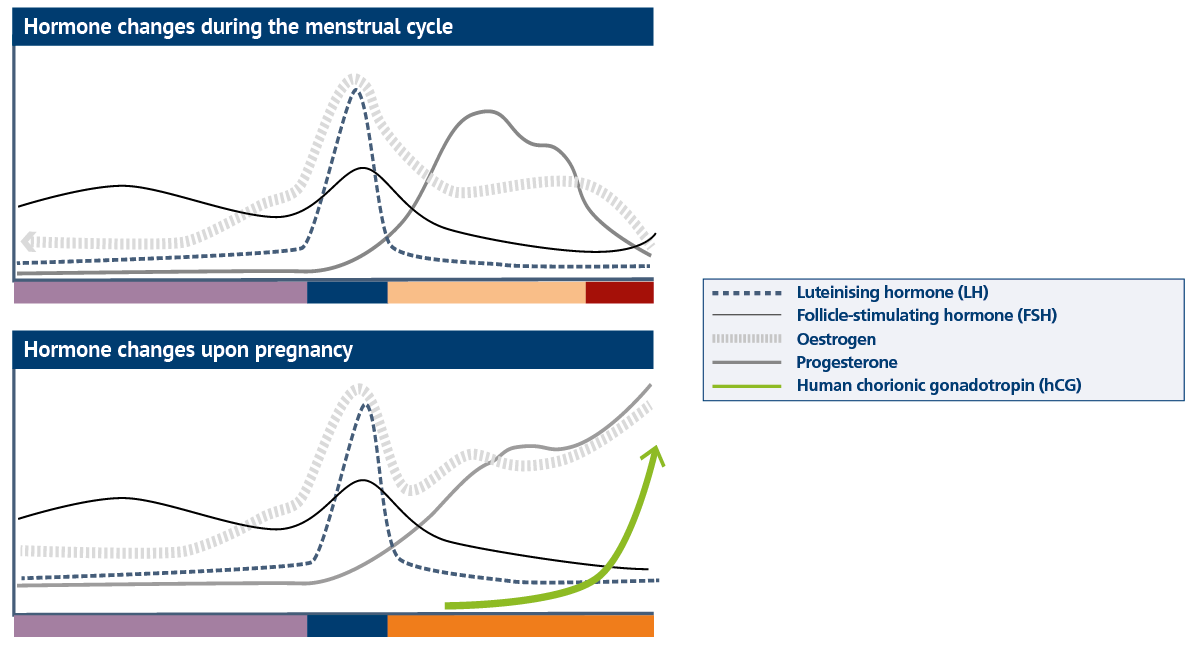
During pregnancy, the higher than usual levels of progesterone and oestrogen that are present suppress the secretion of LH and FSH, meaning menstruation stops and the foetus can develop.
An essential aspect of pregnancy is the development of the placenta – a specialised organ that connects the developing foetus via the umbilical cord to its mother. The placenta acts as a barrier between the bloods of the baby and the mother, preventing them from mixing while enabling nutrients and oxygen to get to the baby and waste products to be carried away. While it means that the mother’s antibodies pass through so the baby has immunity to certain infections in the first few months of life, harmful substances such as nicotine and alcohol can also get through to the developing foetus.
Pregnancy, which lasts around nine months, is divided into three trimesters. During the first, the baby’s body systems develop. During the second, rapid growth takes place – of the baby and the mother’s uterus. The final trimester sees the baby maturing and gaining more weight in preparation for birth; the mother can experience discomfort as her internal organs may get a bit squashed, but also because she experiences softening of connective tissue in preparation for birth.
A few days before birth, progesterone levels drop, which means oestrogen starts to stimulate the smooth muscle of the uterus to initiate labour. During the delivery, the cervix stretches, which stimulates first the hypothalamus and then the pituitary gland. The latter releases oxytocin, which causes the uterus to contract so the baby and placenta can be delivered.
Did you know?
Pregnancy tests detect the presence of hCG, but they vary in sensitivity which is why some can be done from the first day of a missed period while others can be done earlier. Testing too soon can give a false negative, as can drinking so much water that the urine becomes very dilute. Note that an ectopic pregnancy (one that has implanted in the fallopian tube rather than the uterus), an incomplete (symptomless) miscarriage and some other (rare) conditions can lead to a positive test.
